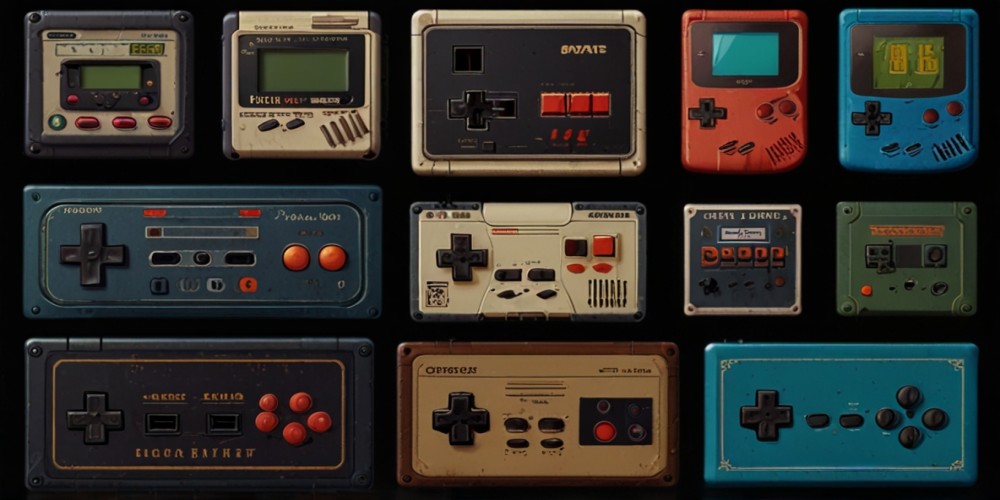Preserving Gaming History: The Importance of Retro Game Emulation
Aug-19-2024

Imagine blowing into a dusty old cartridge, waiting for the logo of your favorite game company to pop up on a chunky CRT TV. That’s nostalgia hitting you right in the feels. But what if you could relive those moments, not just in memory, but in a way that lets you experience them anew? Enter retro game emulation—a bridge that connects our past with our present, a digital preservation that keeps gaming history alive.
The Heart and Soul of Gaming
For many gamers, the classics aren't just games—they’re a part of our identity. Titles like The Legend of Zelda, Super Mario Bros., and Final Fantasy aren't just old-school—they’re legendary. These games laid the foundation for what we play today, and their influence is etched in every pixel, every soundbite, and every storyline. Yet, as technology advances, the original hardware required to play these gems is fading into oblivion, taking with it a piece of gaming history.
What Is Retro Game Emulation?
In simple terms, emulation is the process of recreating a piece of hardware through software. It’s like having a virtual console on your computer, phone, or any other modern device. Emulators mimic the old-school consoles, allowing you to play games designed for those systems as if they were running on the original hardware.
But here's the kicker—emulation isn’t just about playing old games. It’s about preserving the essence of those games. By using emulation, we can keep the experience of playing these classics alive, even as the physical consoles become relics of the past. Emulators are like time machines, letting you jump back into the golden age of gaming whenever you feel like it.
Why Preserve Retro Games?
Ever tried finding an original NES in working condition? Or a Game Boy that doesn’t have a screen plagued by dead pixels? It’s not a walk in the park, that's for sure. The hardware that once brought us joy is now at the mercy of time—fragile, deteriorating, and expensive to replace. And then there's the software. Cartridges and discs degrade over time, and once they’re gone, they're gone for good.
This is where retro game emulation steps in. Emulation ensures that these games aren’t lost to the sands of time. By preserving them digitally, we ensure that future generations can experience the same thrills we did. It's like keeping a photo album of your favorite childhood memories—except in this case, it's an entire collection of interactive adventures.
Access for Everyone
Let’s face it—collecting retro games and consoles can be an expensive hobby. Original copies of rare games can cost an arm and a leg, not to mention the upkeep of aging consoles. Emulation democratizes access to these games. Whether you’ve been a devoted follower for years or are just starting to explore, emulation allows everyone to experience the classics without having to fork out a fortune. It's like opening the gates to a gaming museum where anyone can walk in and enjoy the exhibits.
Keeping the Culture Alive
Gaming is more than just playing—it's a culture. The jokes, the references, the shared experiences—they’re all part of a collective memory. When a game fades into obscurity, a piece of that culture goes with it. Emulation keeps that culture alive by opening up these games to a fresh wave of players. It allows us to pass on the stories, the challenges, and the fun to those who may never have had the chance to experience them otherwise.
The Ethics of Emulation
Of course, with great power comes great responsibility. The ethics of emulation is a hotly debated topic in the gaming community. On one hand, there’s the argument that emulation is essential for preservation. On the other, there's the concern about piracy and the potential loss of revenue for developers and publishers.
It's a fine line to walk. Legal emulation options, like those provided by services such as Nintendo’s Virtual Console, offer a way to support developers while enjoying the classics. However, not every game is available through these channels. Some titles are simply out of reach, either due to licensing issues or the passage of time. In these cases, emulation may be the only option left to keep these games from fading into obscurity.
That said, it’s important to approach emulation with respect. Supporting developers whenever possible, whether through purchasing re-releases, remasters, or official emulation services, is key. But when those options aren’t available, preserving a game through emulation can be seen as a form of respect for the art and the history it represents.
Challenges of Emulation
Emulation isn’t without its challenges. The process of accurately replicating the behavior of old hardware can be tricky. Some emulators might not run a game perfectly, leading to glitches, crashes, or a loss of the original experience. Purists might argue that playing on anything other than the original hardware is sacrilege, but for many, the convenience of emulation far outweighs these concerns.
Another challenge is the legality of emulation. While the creation of emulators themselves isn’t illegal, the distribution of game ROMs—copies of the original game data—is a murky area. It’s a bit of a gray market, with some arguing that it’s a necessary evil for preservation, while others see it as outright theft.
The Future of Retro Gaming
Looking forward, the role of emulation in preserving gaming history will only become more important. As consoles become more advanced, the gap between new and old will widen, making it even harder to maintain the hardware needed to play retro games. Emulation bridges that gap, ensuring that these games can be enjoyed for generations to come.
Moreover, emulation has the potential to breathe new life into old games. Modding communities have already taken to emulation as a way to enhance classics with new features, better graphics, or even entirely new levels. It’s like giving these games a second wind, allowing them to evolve alongside the gaming landscape.
Embracing the Past
At the end of the day, retro game emulation is about more than just playing old games. It’s about keeping the spirit of gaming alive. It’s about remembering where we came from so that we can appreciate where we are now. It’s about ensuring that the legends of our youth don’t fade into obscurity, but instead continue to inspire and entertain.
So, the next time you boot up an emulator and dive into a pixelated world from decades past, remember—you’re not just playing a game. You’re preserving a piece of history, keeping the torch burning for future gamers to experience and enjoy. And that, my friend, is something truly special.







